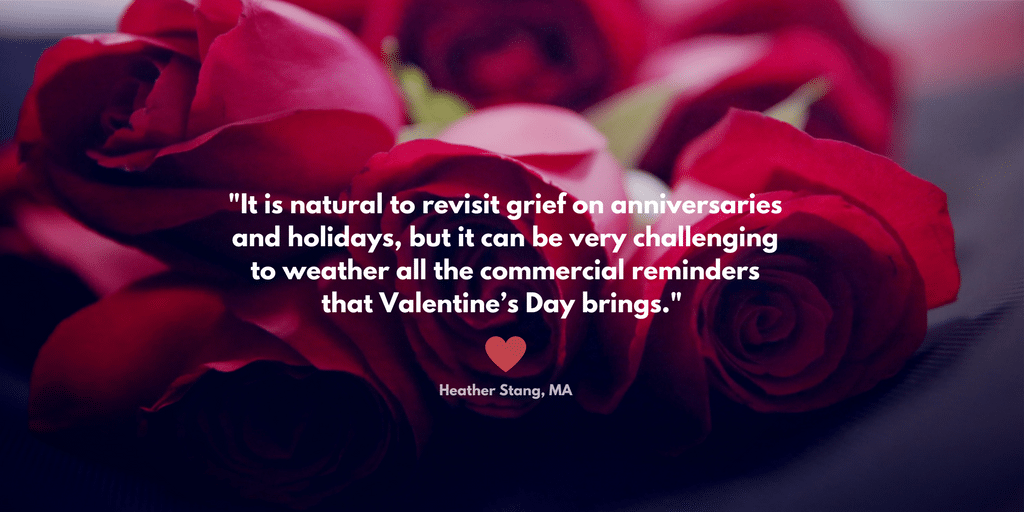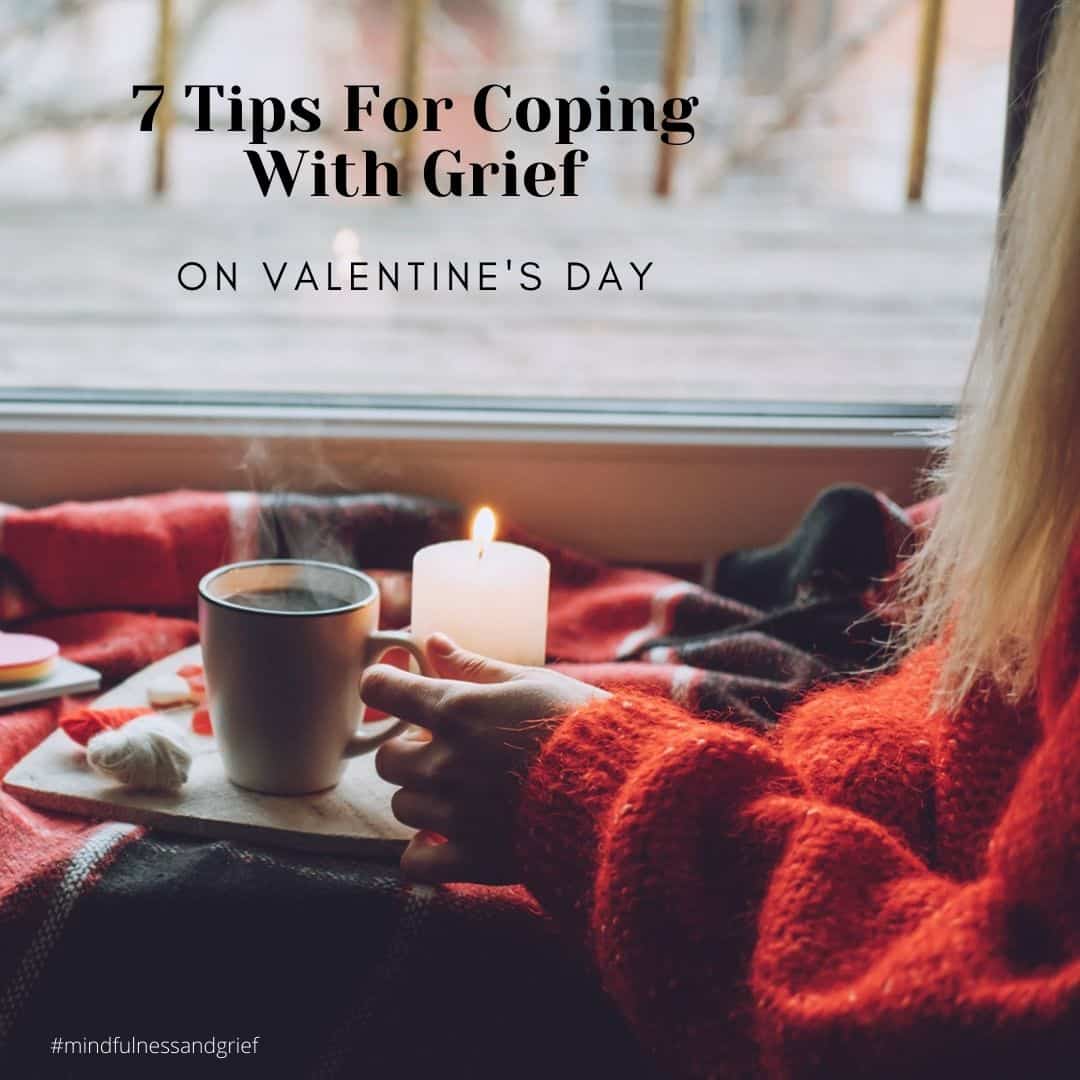Just when you think you’ve made it through the winter holiday and New Year's grief, Valentine’s Day looms on the horizon—a holiday that can stir up deep emotions, especially if you are coping with the loss of a spouse or partner. Whether it’s your first Valentine’s Day after the death of a loved one or many years have passed, this day magnifies feelings of loss and longing.
Like any seasonal holiday, the constant reminders of love—chocolates, jewelry ads, and heart-filled commercials—can intensify the ache of missing someone special. It’s natural to feel overwhelmed by the absence of your loved one, especially when Valentine’s Day was a cherished tradition you once shared.
In my twenty years of working with grieving individuals, I have helped many navigate the challenges of this difficult season. Valentine’s Day can be especially painful, but I’ve found that with the right tools and mindset, it is possible to move through the day with a sense of connection and healing. Below, I’ll share my best tips for coping with Valentine’s Day grief. You may also want to listen to the Mindfulness & Grief Podcast #25: Valentine's Day Grief: Creative Ways To Cope With Grief & Celebrate Your Love.
This episode offers creative ways to honor your loved one and may inspire you alongside the ideas shared below.
Even if it doesn’t feel like it now, you will make it through Valentine’s Day. It’s okay if it’s not perfect—grief is messy and unpredictable. Instead of striving for grace or poise, give yourself permission to feel whatever arises. Whether it’s sadness, anger, or even moments of bittersweet joy, February 14th is a day to honor both your love and your grief.

Planning Ahead A Meaningful Valentine’s Day When You Are Grieving
As with all holidays and anniversaries, some of the anxiety around Valentine’s Day can be eased by creating a plan for how you’d like to spend the day. Even if you decide to change or abandon the plan later, having a framework in place can provide direction and comfort, helping you move through the day with intention.
To help you get started, I encourage you to explore my article 7 Steps to Honor Your Loved One on Their Death Anniversary (And Other Special Days). It offers detailed guidance and practices you can adapt for Valentine’s Day. Many of these ideas are inspired by my guided grief journal, From Grief to Peace, and are designed to support you as you reflect on your love and loss.
Here are a few prompts, adapted from the journal, to guide your planning:
- What are the most important memories or aspects of your loved one that you want to acknowledge this Valentine’s Day?
- What rituals, actions, or new traditions could you create to honor their memory?
- Who do you want to connect with for support or to share memories? Is there anyone you’d prefer to avoid?
Once you’ve reflected on these questions, consider brainstorming a schedule or simply making a list of meaningful activities for the day. Whether it’s visiting a special place, lighting a candle in their memory, or practicing a mindfulness exercise, your plan can help transform the day into a time of connection and healing.

7 Tips to Cope With Valentine’s Day Grief
- Commemorate the memory of your beloved. Love doesn’t go away, and we never forget. Nor would we want to. Whether you choose to volunteer for the day at your loved one’s favorite charity, visit their gravesite, write them a love letter in your grief journal, share your favorite stories about them with family or friends, or hike to your favorite vista, remembering your beloved with intention on this day is a way to continue the bond you share.
- Enjoy an at-home self-care retreat. Crawl under the covers with a cup of chamomile tea and a good book. Immerse yourself in a day-long yoga, meditation, and journaling session. Take the day off, grab your grief journal, order a good meal, and pour your heart out. There is nothing wrong with, and everything right about, giving yourself the self-care you deserve.
- Connect with a local Widow/widower/partner loss group. Search online or call your local hospice to see if there is one in your area or that you can access online. Before the pandemic many of these groups would host a Valentine’s Day meal at a local restaurant. Some are hosting online gatherings on Feb. 14.
- Reach out to friends and family. Alone time is good, but if you are withdrawing from the people that support you, Valentine’s Day is just as good a time as any to reach back out. Schedule a Zoom call to share photos and memories of your special person with other people who share your grief. If you don’t feel like connecting with others, that is fine, just make sure it is a choice rather than a habit.
- Order a delicious meal. Many of us are already eating at home, but if you do eat out regularly, know that during the month of February restaurants are full of grief triggers, mostly in the form of hearts and flowers. On Valentine’s Day itself you will see couples celebrating, which can be a painful reminder. If you feel that will just cause you suffering, do yourself a favor and either order your favorite meal delivered, or, if you like to cook, prepare it yourself.
- Plan for “business as usual.” It is totally acceptable to not celebrate Valentine’s Day at all. Of course, it is highly unlikely that you will be able to pretend it doesn’t exist. Even if you treat it like any other day, don’t be surprised if you still have a grief reaction. Know in advance what you can do to tend to strong emotions when they arise. What are your most helpful coping skills? Keep those handy and use them as often as you need!
- Cultivate compassion for yourself and others with meditation. While suggesting that you “be your own Valentine” may sound a bit corny, and it won’t fill the void left when a loved one dies, compassion meditation practice, known as metta meditation, can go a long way to help you feel more connected to yourself and the world at large. You can reframe the message of Valentine’s Day from one of romantic love to a universal love of all sentient beings: animals, spiritual leaders, friends, family, strangers, yourself, and even those pesky difficult people.
- Show yourself kindness and mercy. You will no doubt be bombarded by images and soundbites of Valentine’s Day between now and Feb. 14. Offset the suffering you feel by practicing self-compassion as self-care. Send yourself words of self-compassion and mercy: “This is hard, but I am doing my best,” “May I be free from my suffering, and surrounded by love,” or “I feel this sadness because I love deeply. I would not trade that for anything.” My mindfulness-based meditation for grief and sadness is a useful tool for tending to difficult emotions.
No matter how you wind up spending Valentine’s Day, please be kind to yourself. Your grieving heart deserves it.


